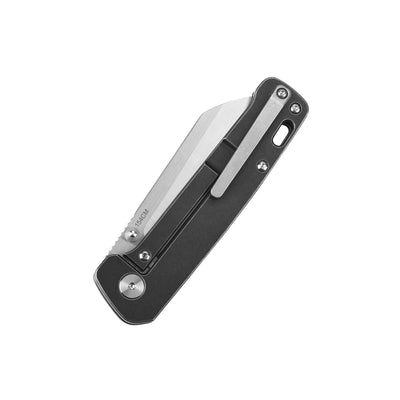In the world of knives, the frame locking knife stands out as a remarkable innovation. This design not only enhances the knife's functionality but also ensures safety during use. But how did this design evolve, and what makes it so special? Let's delve into the history and mechanics of frame locking knives.

Understanding Frame Locking Mechanism
The frame locking knife employs a unique mechanism where a portion of the handle, typically made from metal, acts as a lock for the blade. When the blade is opened, a part of the handle moves into place, securing the blade and preventing accidental closure. This design is not only robust but also simplifies the locking process compared to traditional liner locks.
- Durability: Frame locks are often made from sturdy materials, enhancing the knife's lifespan.
- Ease of Use: The mechanism allows for one-handed operation, making it convenient for users.
- Safety: The secure locking feature minimizes the risk of injury during use.
Historical Context of Frame Locking Knives
The journey of the frame locking knife began in the late 20th century. While folding knives have existed for centuries, the introduction of the frame lock brought a new level of security and reliability. Pioneered by knife designer Chris Reeve in the 1980s, this design quickly gained popularity among knife enthusiasts and professionals alike.
Why did this design resonate so well with users? The answer lies in its combination of simplicity and effectiveness. As knife technology advanced, the frame lock became a preferred choice for tactical and everyday carry knives.
Modern Innovations in Frame Locking Knives
Today, the frame locking knife has undergone numerous enhancements. Manufacturers are now utilizing advanced materials such as titanium and carbon fiber, which not only reduce weight but also increase strength. Additionally, modern designs often incorporate ergonomic features, making them comfortable to hold and use.
- Material Advancements: The use of high-quality steels and lightweight materials has improved performance.
- Design Aesthetics: Contemporary frame locks often feature sleek designs, appealing to a broader audience.
- Customization: Many brands now offer customizable options, allowing users to select blade shapes and handle finishes.
Choosing the Right Frame Locking Knife
When selecting a frame locking knife, consider your specific needs. Are you looking for a knife for everyday carry, or do you need something more specialized for outdoor activities? Understanding your requirements will help you make an informed decision.
For those interested in exploring a variety of frame locking knives, check out  . This collection showcases a range of options, ensuring you find the perfect knife to suit your needs.
. This collection showcases a range of options, ensuring you find the perfect knife to suit your needs.
Conclusion
The frame locking knife has certainly evolved over the years, reflecting advancements in design and technology. As we continue to explore new materials and functionalities, one thing remains clear: the frame lock will remain a staple in the knife community for its unmatched reliability and safety.








